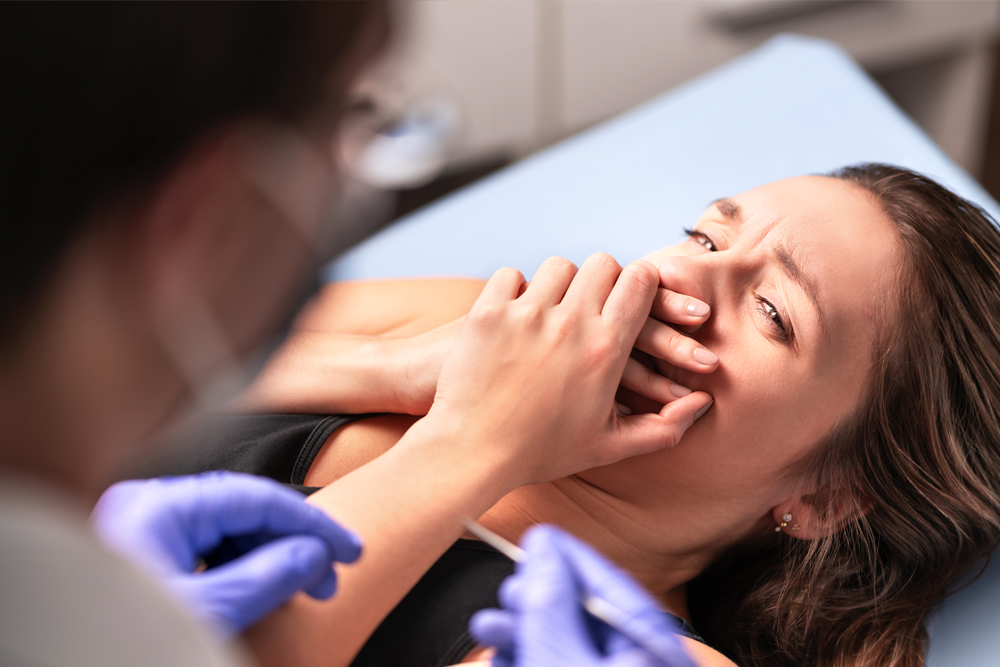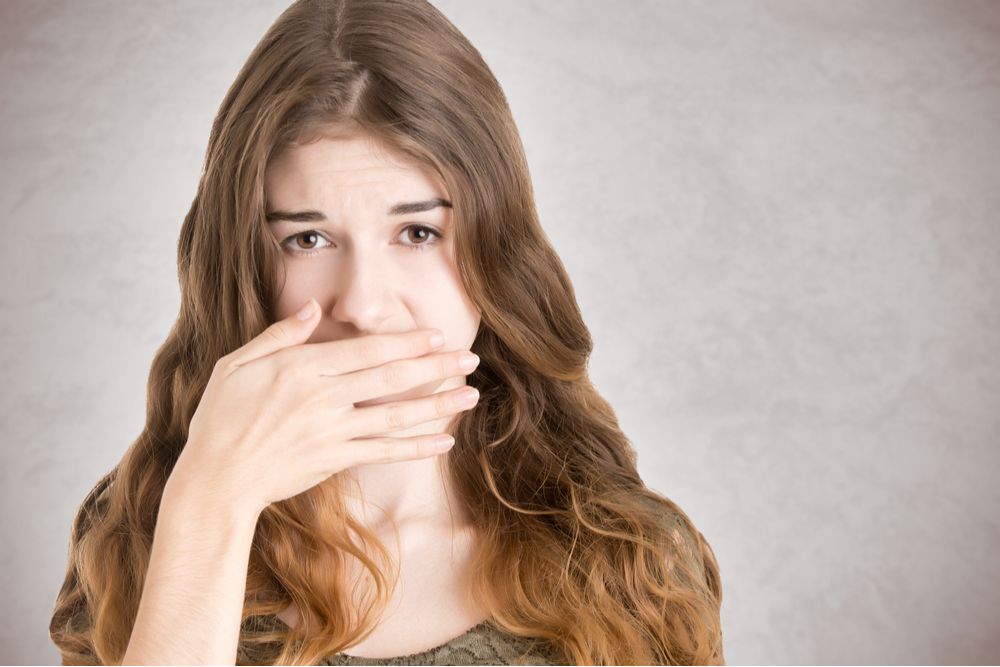

What is dental phobia?
Statistics suggest that, in western countries, phobias afflict 7-13% of the population and that women are twice as likely to suffer from a phobia as men. However, as many people do not feel comfortable talking about their phobias, it is thought that this figure could be a lot higher.
Dental phobia seems to be an increasing phenomenon, although that may be because, as doctors become better at treating phobias, more people are seeking help. Dental phobia – or dentophobia to give it its proper name – is generally defined as a fear of dentists and dental work. The reality is that dentophobia is triggered by a complex and multi-layered set of fears which means that every sufferer can experience different stimuli, different levels of fear and different symptoms.
What are the causes of dentophobia?
In many cases, dentophobia is a generic fear of dentists and dental work. Therefore, people who suffer from dentophobia cannot even visit the dentist without suffering from anxiety attacks or other symptoms. Similarly, the attacks can also be stimulated by the generic smells, sights or sounds of the dental surgery – so simply being there is enough to trigger a phobic reaction.
In many other cases of dentophobia however, the fear revolves around something much more defined, specific and individual. Here are just a few examples of the kinds of fears that are broadly described as ‘dental phobia’.
Fear of dentists: for many people, dentists represent authoritarian figures that are there to check how well we’ve looked after our teeth. This kind of perception often stems from childhood visits to the dentist.
Fear of needles: fear of needles is a common phobia which is all the more difficult to cope with in dental situations. It is very difficult to look away or think of something else when the needle needs to go into your gum or cheek.
Fear of pain: the avoidance of pain is a natural instinct. So once again, many patients who experienced pain at the dentist as a child find it very difficult to go back.
Fear of numbness: many people who suffer from dentophobia are unable to visit their dentist because they are afraid of being unable to call for help or control the level of pain they receive. They feel that, if they are under local anaesthetic, for example, they may find it difficult to communicate with their dentist.
Fear of choking: fear of choking is another common phobia which makes everyday life difficult. One area where is becomes particularly acute is at the dentist.
Fear of anaesthetic: most people do not fear anaesthetic but the thought of what could happen. They are phobic about waking up and feeling the pain, or of not responding to the anaesthetic – or of being allergic to anaesthetic.
Fear of the dental drill: the drill is an iconic symbol of dentistry for many people, the embodiment of everything they fear in the dentist. The distinctive sound is often enough to stimulate an anxiety attack amongst phobic patients.
Fear of being embarrassed: many phobic dental patients will go to great lengths to avoid a visit to the dentist. This creates its own problems as the worse their teeth and oral health becomes, the more anxious they become about visiting the dentist.
Fear of diagnosis: finally, fear of diagnosis is the fear of a simple check-up turning into an expensive, long procedure that runs out of the patient’s control. For phobic patients, therefore, the ‘solution’ is usually to avoid their check-up.
These are some of the most common forms of dentophobia and many phobics can suffer from more than one type. You can read more about specific case studies of phobic sufferers elsewhere on this site.
What are the implications of dentophobia?

With many phobias, patients can go to great lengths to avoid the stimuli and, to a certain extent, they can carry on with their lives. Of course, if you suffer from a fear of heights, avoiding heights on a day-to-day basis can be extremely difficult and can cause embarrassment and stress. However, it is possible to live with your phobia to a certain extent.
The problem with dentophobia is that it has serious implications for your oral health. Many sufferers will go for years without visiting the dentist, hoping that they can avoid toothaches and avoid any need to make an appointment.
Most dentists, however, will recommend that you visit your dentist and oral hygienist once every six months – as a minimum. No matter how fastidious you are about looking after your teeth, it is always possible that your dentist will spot something which will benefit from minor – and early – treatment.
Individuals who are dental phobic and who avoid visiting their dentist for long periods of time run the risk of allowing straightforward dental work to degrade into a requirement for more major treatment. Therefore – and this is no consolation to the phobic sufferer – their imaginative efforts to avoid a trip to the dentist will only increase the likelihood that they need to go in future. Probably, they will need more complex dental work done too.
What can dental phobics do?
For many dental phobics, while visiting the dentist fills them with dread, the implications of not visiting the dentist make them equally stressed and anxious. Their situation feels futile and their imagination runs away with them. They can’t ‘manage’ their phobia – nor can they face it.
What many dental phobics do not realise is just how common their phobia is. In recent years, great strides have been made by the dental profession in recognising that many patients need more support, more advice and more customer care from their dentists.
Modern dentists are now better trained and better equipped to deal with dental phobics. They are more knowledgeable, more understanding and more sympathetic.
Therefore, for many dental phobics the first step with regards to visiting the dentist after a long period away is now much easier. They can talk to their dentist, find out about advice and support, explain about their phobia and discuss how to move forward.

